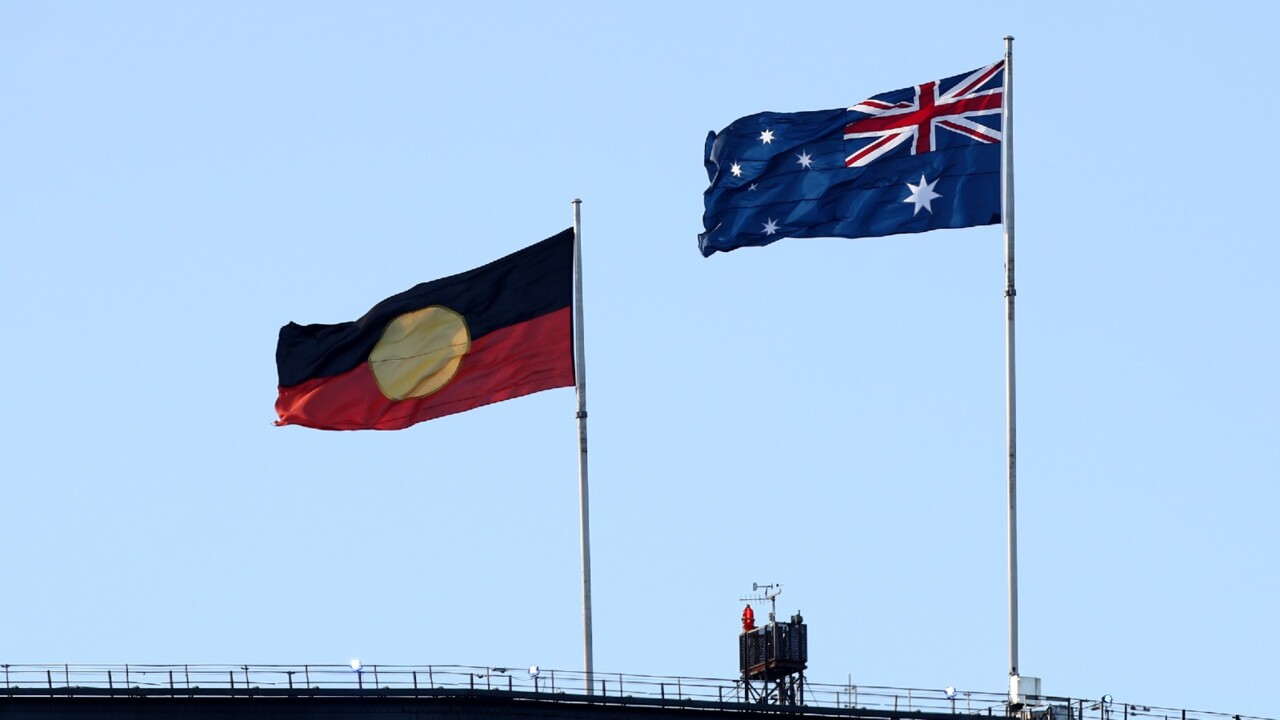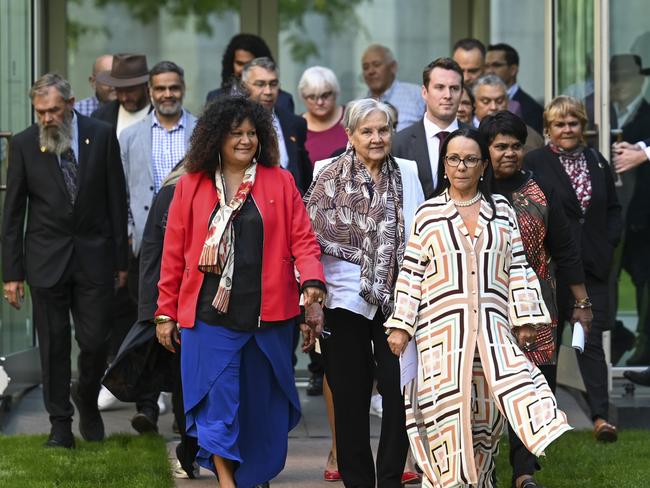
By the end of last week, it had disappeared.
When that poster was put on the board, the vast majority of Australians, led by Victorians, wanted the opportunity to register in the constitution the role of First Nations people in our history.
But gradually the message started to spread that if the referendum was passed, indigenous people would be given much greater powers than those held by non-indigenous people. As that word spread, the support for “Yes” declined.
The recent poll by JWS Research has “No” case support soaring, including reaching lineball status in the “Yes” stronghold of Victoria.
JWS is one of our most reputable research organisations and has among its clients the Australian, NSW and Victorian governments, BHP, Transurban, Orica and Universities Australia.
Like the gymnasium, leading companies and organisations that decided to support the voice as a recognition of First Nations people now need to listen to the opinions of their shareholders, customers and supporters.
And the referendum debate is about to take a nasty twist.

The proposed wording of the constitutional amendment was developed by some of the so-called “giants” – a term used by Anthony Albanese – in the Aboriginal community.
One of those “giants” is Thomas Mayo, and the “No” campaign has isolated a series of filmed extracts from statements he has made describing where a “Yes” voted heads the nation.
When my readers view the Mayo messages, they should remember the filmed remarks were not in context and may not be the views of the others in the Aboriginal community.
Nevertheless, Mayo is one of the architects of the Voice referendum proposal and signatory of the Uluru Statement. And his views are not far away from the fears being expressed by some of Australia’s top constitutional experts.
The Mayo interpretations revolve around three powers in the proposed constitutional change – the right to make representations to the public service as well as the parliament on an almost unlimited range of issues, plus the presumed right to have those representations considered.
And thirdly, the relegation of the powers of parliament in these matters.
The filmed extracts set out what Mayo is trying to achieve;
– “We are sick of governments not listening to our voice. We’re going to use the rule book of the nation to force them. There is nothing more powerful than building a First Nations’ voice, a black institution – a black political force to be reckoned with”.
– We will “keep going until we change the system, until we tear down the institutions that harm our people”.
– “We also to pay respects to the elders of the Communist Party, who I think, without a doubt, have played a very important role in our activism”.
– “You know this is the first step. It’s a vital step. Pay the rent, for example. You know, how do we do that in a way that is transparent and that it actually sees reparations and compensation to aboriginal and Torres Strait Islander people”.
– “The power in the voice is that it creates the ability for First Nations to go forth with coherent positions on what legislation needs to be created; what legislation needs to be amended and punish politicians that ignore our advice”.
Those advocating the “Yes” case will point out that voice body can only make representations and not make decisions, so will be in no position to “punish politicians”, force rent on Australian people or “tear down the institutions that harm our people” – and the High Court will not allow it.

Given the indigenous people body’s constitutional right to make representations, it is reasonable to speculate that the High Court is likely to decide that those representations will need to be considered by the public service and parliament.
Public servants may therefore need to inform indigenous people of pending decisions and receive their views or, alternatively, they may make a decision and then refer it to the aboriginal and Torres Strait Islander body for review.
That power has the potential to make the business of government unworkable by greatly elongating the decision-making process.
In theory, politicians that don’t go along with aboriginal representations may be “punished” via their departments being totally clogged in consideration requests.
Endless representation queries may have the potential power to tear down politicians and institutions.
On the other hand, the High Court has the power to limit such a strategy.
Also on the Mayo agenda will be “rent” because non-indigenous people may not own Australian land.
We often reinforce that view in statements prior to gatherings.
In the absence of High Court action, rent, perhaps in the form of massive reparations, may be required to overcome a clogging of the system.
Mayo is the national indigenous officer of the Maritime Union of Australia, and that’s perhaps how he was helped by the Communist Party.
Of course, if the referendum is rejected, it will trigger a wave of racial tension.
But even if it is passed, the Mayo projections as to what it means with cause a deep backlash from non-indigenous people.
The community divisions ahead were underlined when the opposition leader made suggestions as to how to overcome the looming problems but was declared by the prime minister as being unfit to be a prime minister as a result of those suggestions.
The matter of recognition of First Nations people in the constitution was too important to have been based on the proposals of Mayo and the others at Uluru.
A full constitutional convention involving all parts of the nation was required.







For more than a month, a Victorian regional gymnasium displayed on its notice board a prominent vote “Yes” poster.